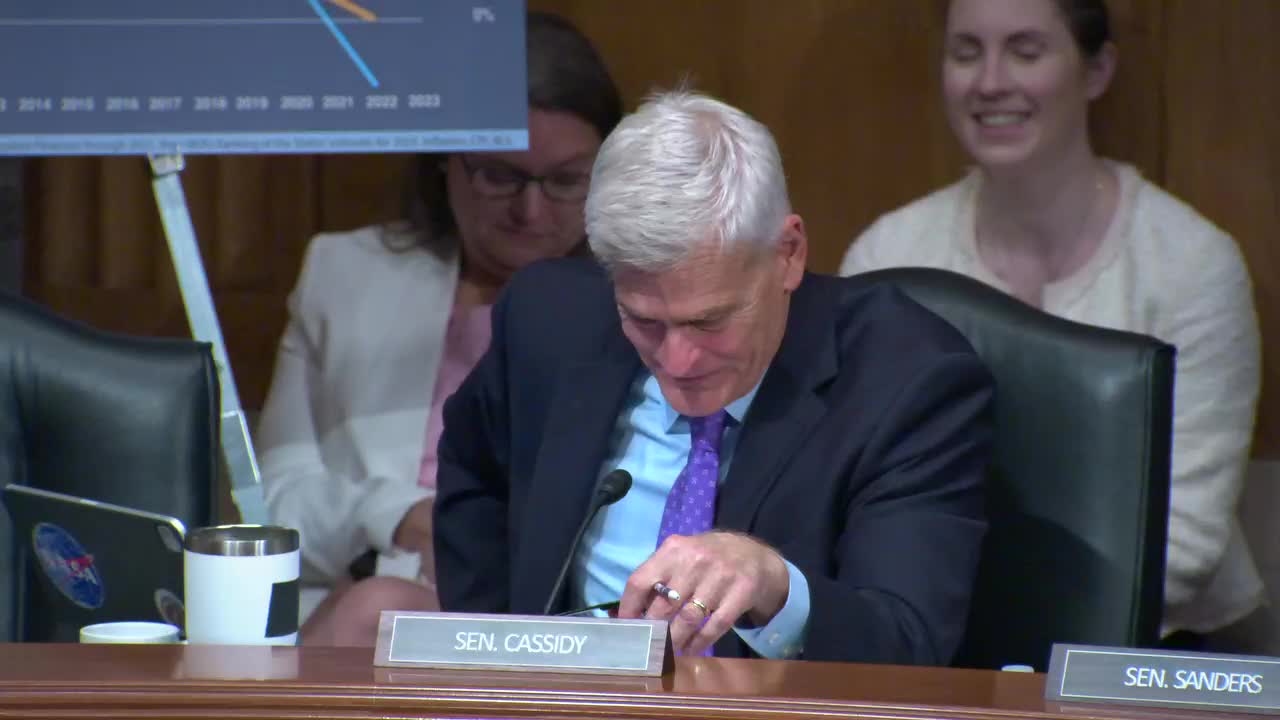Education system in crisis as student proficiency plummets
June 20, 2024 | Health, Education, Labor, and Pensions: Senate Committee, Standing Committees - House & Senate, Congressional Hearings Compilation

This article was created by AI summarizing key points discussed. AI makes mistakes, so for full details and context, please refer to the video of the full meeting. Please report any errors so we can fix them. Report an error »

During a recent government meeting, education advocates expressed deep concerns regarding the state of American education, particularly in the wake of the COVID-19 pandemic. Miss Neely, a key speaker, highlighted alarming declines in student proficiency across core subjects, citing the National Assessment of Educational Progress (NAEP) scores. She noted that in 2023, only 16% of students nationwide demonstrated proficiency in math, with significant drops reported in states like Vermont, Pennsylvania, and Oklahoma. Reading proficiency was equally troubling, with only 32% of fourth graders in Virginia and 30% of eighth graders in Minnesota meeting standards.
Neely criticized school districts for eliminating advanced classes under the guise of equity, arguing that such actions hinder the progress of gifted students. She pointed out that while students spend approximately seven hours a day in school, much of that time is devoted to identity politics rather than addressing educational deficits. This shift has reportedly eroded trust between parents and school districts, exacerbated by policies that limit parental involvement in discussions about their children's gender identity.
Concerns about school safety were also raised, particularly in light of rising drug overdose deaths among adolescents. Neely recounted incidents where serious threats, such as a student's kill list, were mishandled by school officials, further alienating parents who often learn about such events through social media rather than direct communication from schools.
The meeting underscored a broader critique of how educational resources are allocated, with Neely asserting that the focus should be on improving student outcomes rather than on diversity, equity, and inclusion initiatives that do not directly benefit students. She called for a reevaluation of spending priorities within school districts, emphasizing the need for a return to fundamental educational goals: teaching students to read, write, and engage in critical thinking.
As the meeting concluded, the urgency for reform in the American education system was palpable, with participants acknowledging the complex challenges teachers face in the classroom, including the impact of students' home environments and emotional disturbances. The discussions highlighted a critical moment for education policy, as stakeholders seek to address the pressing issues affecting the next generation of learners.
Neely criticized school districts for eliminating advanced classes under the guise of equity, arguing that such actions hinder the progress of gifted students. She pointed out that while students spend approximately seven hours a day in school, much of that time is devoted to identity politics rather than addressing educational deficits. This shift has reportedly eroded trust between parents and school districts, exacerbated by policies that limit parental involvement in discussions about their children's gender identity.
Concerns about school safety were also raised, particularly in light of rising drug overdose deaths among adolescents. Neely recounted incidents where serious threats, such as a student's kill list, were mishandled by school officials, further alienating parents who often learn about such events through social media rather than direct communication from schools.
The meeting underscored a broader critique of how educational resources are allocated, with Neely asserting that the focus should be on improving student outcomes rather than on diversity, equity, and inclusion initiatives that do not directly benefit students. She called for a reevaluation of spending priorities within school districts, emphasizing the need for a return to fundamental educational goals: teaching students to read, write, and engage in critical thinking.
As the meeting concluded, the urgency for reform in the American education system was palpable, with participants acknowledging the complex challenges teachers face in the classroom, including the impact of students' home environments and emotional disturbances. The discussions highlighted a critical moment for education policy, as stakeholders seek to address the pressing issues affecting the next generation of learners.
View full meeting
This article is based on a recent meeting—watch the full video and explore the complete transcript for deeper insights into the discussion.
View full meeting